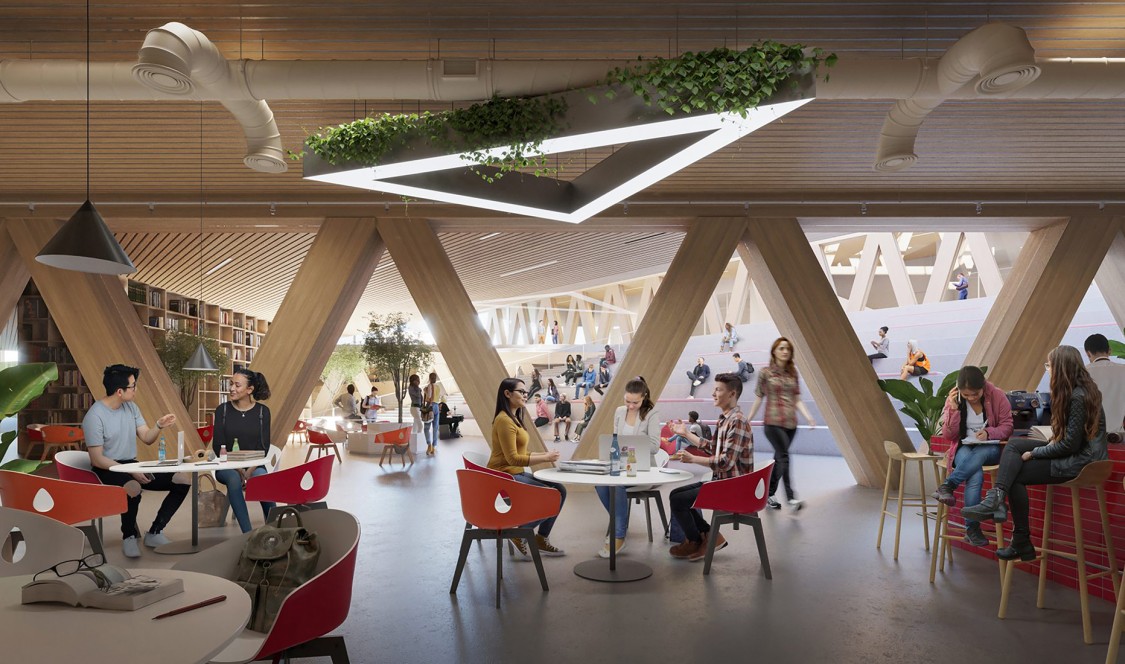Health, Brain, Planet
CMC’s Kravis Department of Integrated Sciences program will build a “common on-ramp to the sciences” through general education courses and create meaningful conversations around the impact of science on society.
The program will be organized around three major socio-scientific grand challenges: health, brain, and planet. Several of the facets of these grand challenges were highlighted by the National Science Foundation in 2021 as among “the most important challenges that humankind has ever faced.”
The three priorities interrelate with one another and provide opportunities for important intersections with the study of psychological sciences, history, economics and business, government and policy, philosophy and ethics, and other disciplines at CMC.
The Kravis Department of Integrated Sciences’ three foci will prepare students for myriad pathways upon graduation.
- Health (Genomics, Systems Biology, and Health)—the exploration of molecular data to understand the function and regulation of genes, the biological systems that they control, and the development of predictive models that ultimately contribute to improving human health;
- Brain (Brain, Learning, and Decision)—the investigation of mental processes, behavior, and decision-making, including aspects of neuroscience, cognitive science, artificial intelligence, and machine learning; and
- Planet (Climate, Energy, and the Environment)—the examination of atmospheric processes and the chemical, physical, and biological aspects of climate change, and the interactions of human activities and the natural and built environments
Responsible leadership today requires a commitment to address and anticipate the big questions of science and technology in the public sphere.
To fulfill this commitment, CMC is developing a next-generation integrated sciences program that will offer an innovative, inclusive, powerful approach to the socio-scientific grand challenges of health, brain, and planet. The program integrates CMC’s existing strengths in the social sciences and humanities with new ones in the natural sciences, coupled with computing and data science as vehicles for insight and discovery.
Courtney Hooks ’23 is the face of the future. Her career goal is to play a leadership role in the therapeutics industry. To succeed, she’ll need to stretch beyond biology, her undergraduate major. She’ll also need all the tools a liberal arts education can bestow.
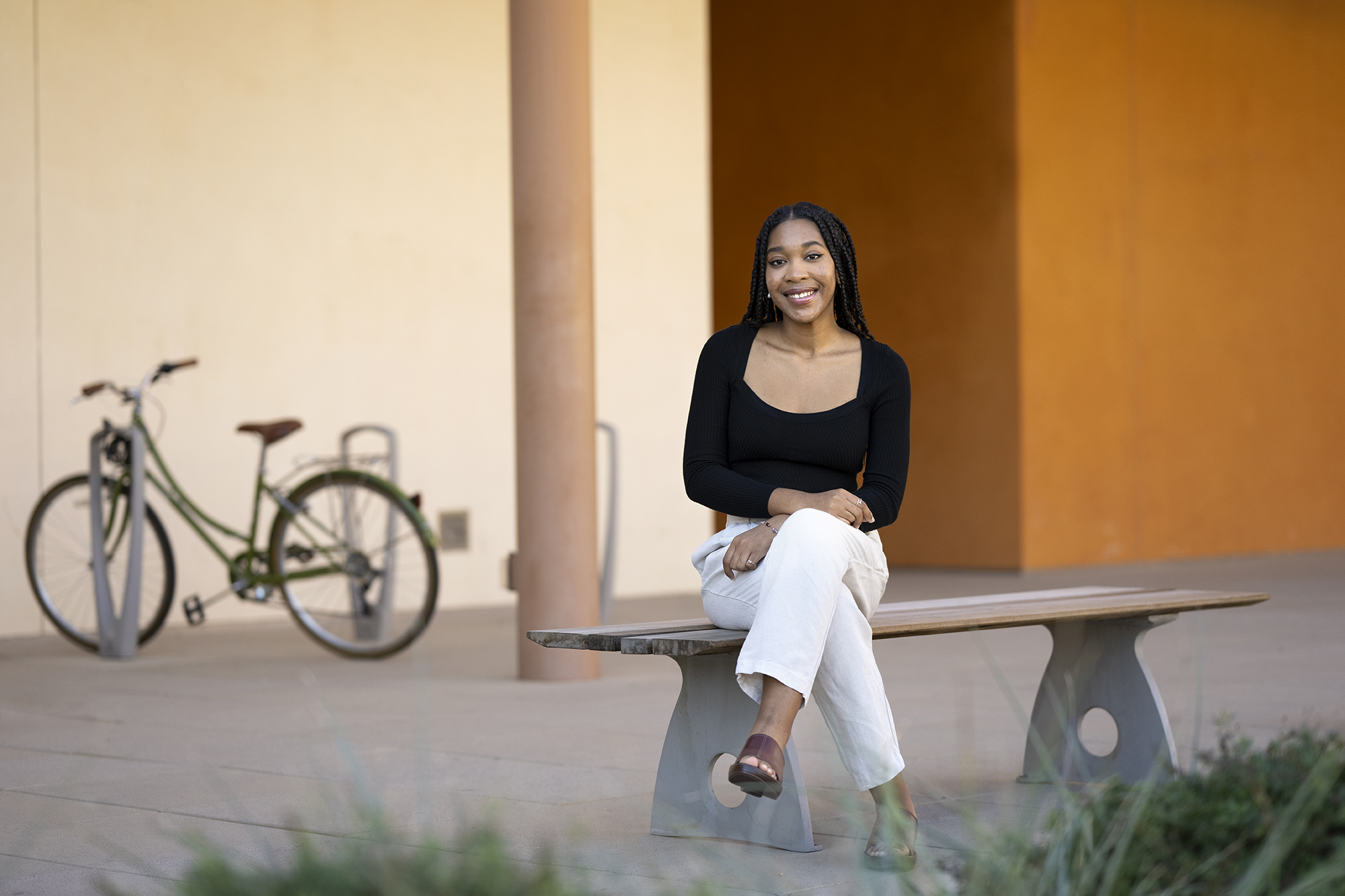
After CMC, Courtney Hooks ’23 plans to pursue graduate study in biochemistry.
Claremont McKenna College keeps pushing Hooks “outside my comfort zone.” She’s discovered a love of Middle Eastern art and history. “I am also getting a great deal of leadership experience—much more than I would have gotten at a larger school,” said Hooks, who plans to pursue graduate study in biochemistry and is head consultant with the Center for Writing and Public Discourse and an Appel Fellow.
In blending disciplines, Hooks is doing it right, and CMC is ensuring that all students make the most of their liberal arts education to thrive in their chosen professions.
To that end, the College is working to transform the way that science is taught in a liberal arts context, beginning with the creation of an innovative general education sequence that will be taken by all CMC students. The new science curriculum will provide students with strong foundations in the sciences, and the skills and confidence to engage in creative problem-solving on challenges that transcend traditional disciplinary boundaries.
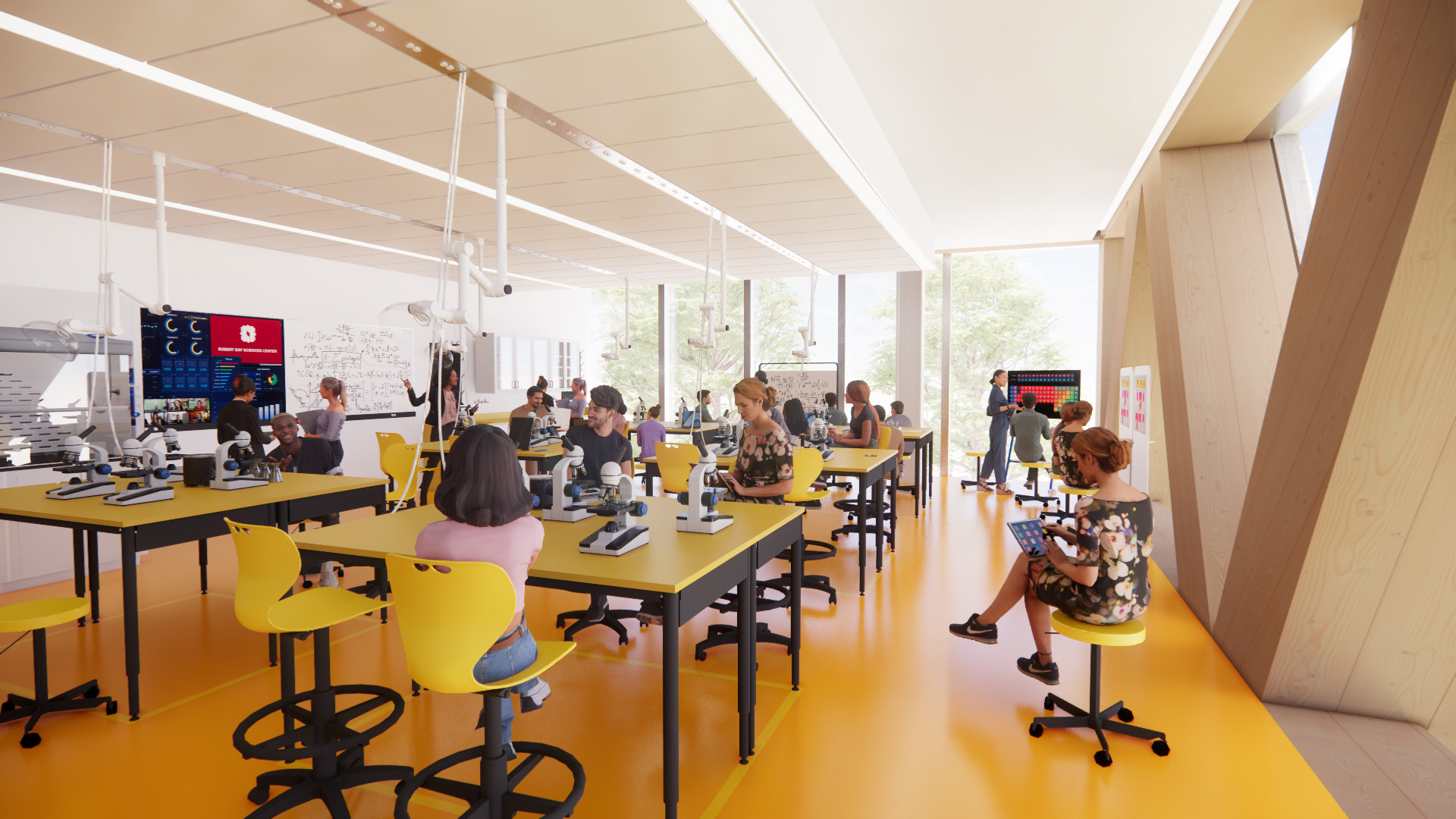
“We live in a world in which scientific discovery, computational breakthroughs, and the technological applications of them are infusing almost everything we do,” said CMC President Hiram E. Chodosh.
“Responsible leadership means leading in response to the socio-scientific grand challenges and opportunities. It is our responsibility to prepare students for the intersections that haven’t yet been reached.”
Breakthroughs in genomics, neuroscience, and renewable energy come with increasingly complex societal, economic, political, legal, and ethical implications. Tomorrow’s legal experts, policymakers, consultants—not to mention CEOs—will need fluency to participate in a science-rich discourse that increasingly touches every decision.
The key lies in integrated science. When so many scientific challenges require perspectives from multiple disciplines, our students will be best served by engaging with those connections and relationships early and often.
Integrated sciences break down those boundaries, and CMC has embraced the concept in a paradigm-shifting way. Building on its core strengths and foundational liberal arts and leadership mission, CMC is becoming a national model.
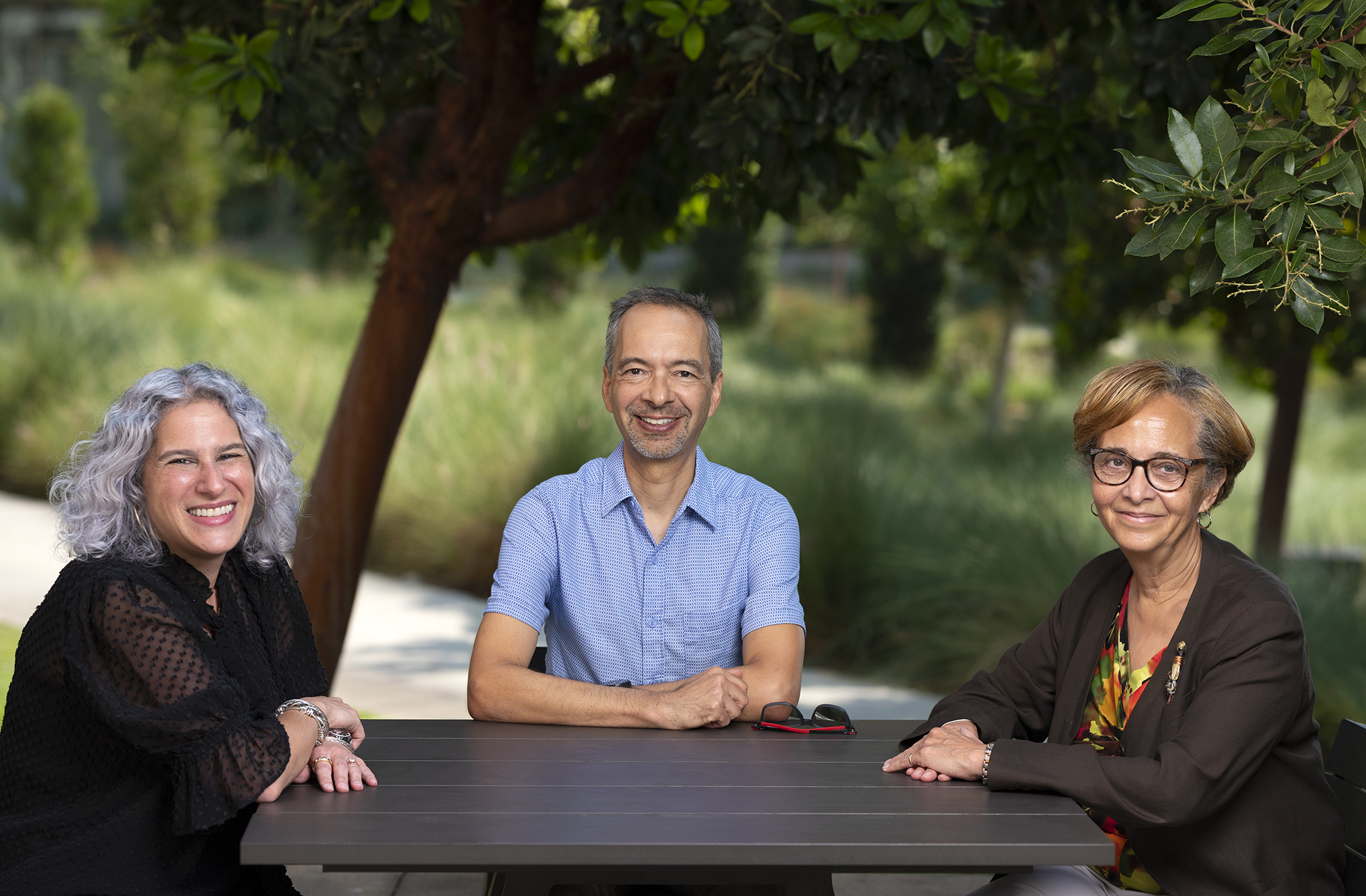
founding chair of the Kravis Department of Integrated Sciences; and
Muriel Poston, vice president of strategic initiatives.
Alumni of the future will reflect on 2021-22 as the most significant academic year in the College’s history, a transformational moment.
The year opened with the College recruiting Ran Libeskind-Hadas as the Kravis Department of Integrated Sciences founding chair, and Muriel Poston to fill the newly created position of vice president of strategic initiatives. Libeskind-Hadas and Poston worked closely with Heather Antecol and Emily Wiley, respectively CMC’s vice president for academic affairs and dean of the faculty and associate dean of faculty, to develop an expansive vision and ambitious implementation plan.
After 18 months of remarkable challenges due to the pandemic, the CMC community made a triumphant return to campus and realized our vision by implementing the 2019 CMC Strategy Report through a significant investment in integrated sciences.
By the end of the fall semester's return to campus, CMC unveiled plans for an iconic structure to house the Kravis Department of Integrated Sciences.
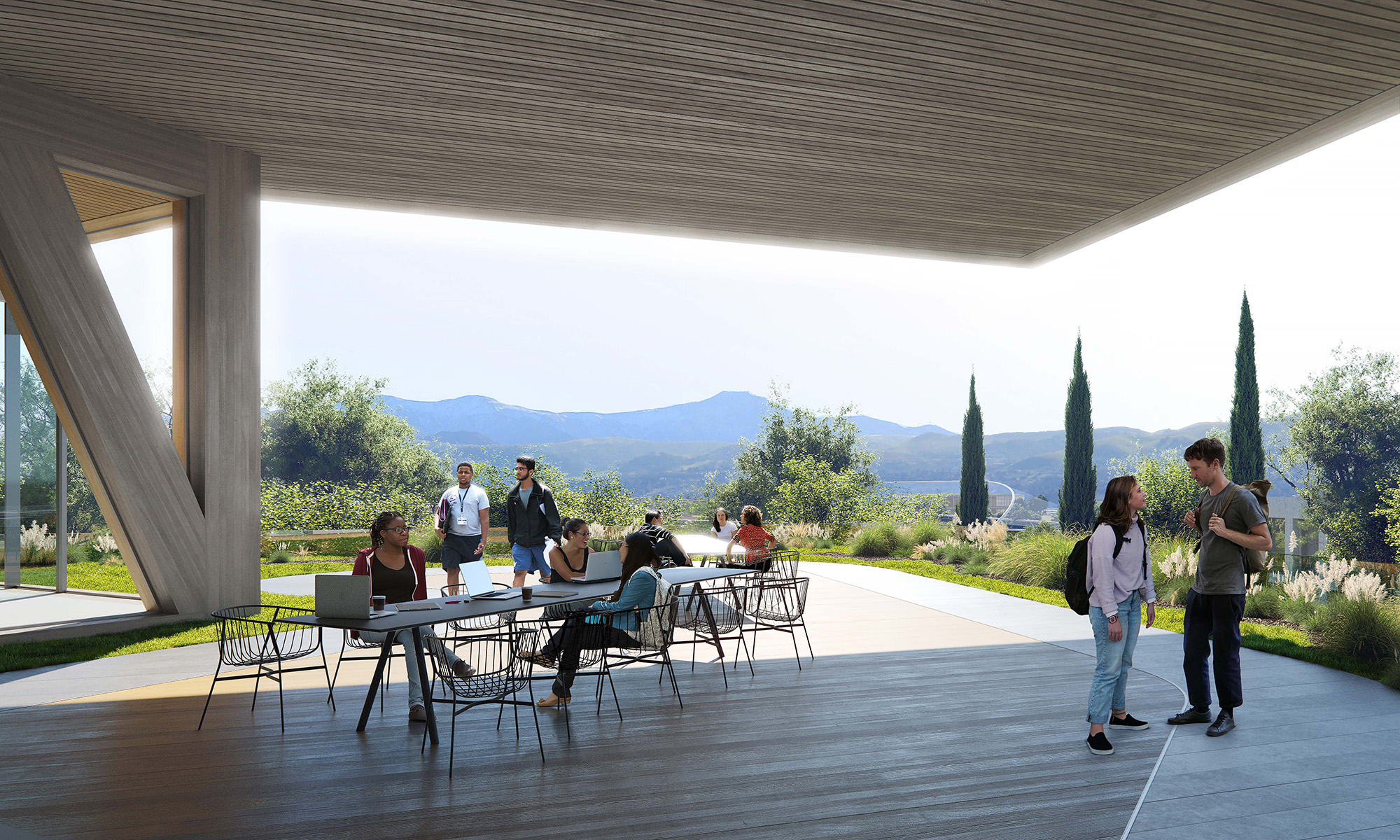
Known as the Robert Day Sciences Center, the 140,000-square-foot facility honors Robert Day ’65 P’12, a 50-year CMC trustee, and W.M. Keck Foundation Chair and Chief Executive Officer. It is supported by a $40 million lead gift from the W.M. Keck Foundation, and generous investments from foundations affiliated with the Robert Day family.
The College announced the naming of the Kravis Department of Integrated Sciences to kick off 2022. Philanthropist, trustee, and alumnus Henry Kravis ’67 and his wife, Marie-Josée, made a transformative commitment of up to $215 million in support of CMC’s vision for a next-generation program.
“A liberal arts education is about teaching students how to think and to problem-solve. It’s imperative for both science and humanities majors to receive a broad education. Ethical consideration has to be part of everything we do, not just in technology, but in the humanities, in politics, and in science. In every field,” Kravis said.
The Kravises’ gift will support the appointment of 25 world-class liberal arts faculty, including 12 Kravis Department of Integrated Sciences chairs. The new integrated sciences faculty seek to blur the boundaries between the sciences, social sciences, and humanities, embracing computation as a tool to explore contemporary questions.
Together, the Kravis Department of Integrated Sciences and the Robert Day Sciences Center represent an educational evolution in how the College will prepare CMCers—one that deliberately and coherently integrates sciences and computation with the humanities and social sciences to address big thematic priorities in scientific discovery and application: such as (i) health, including genomics, systems biology; (ii) brain, including brain health, as well as learning and decision sciences; and (iii) planet, including climate, energy, and the environment.
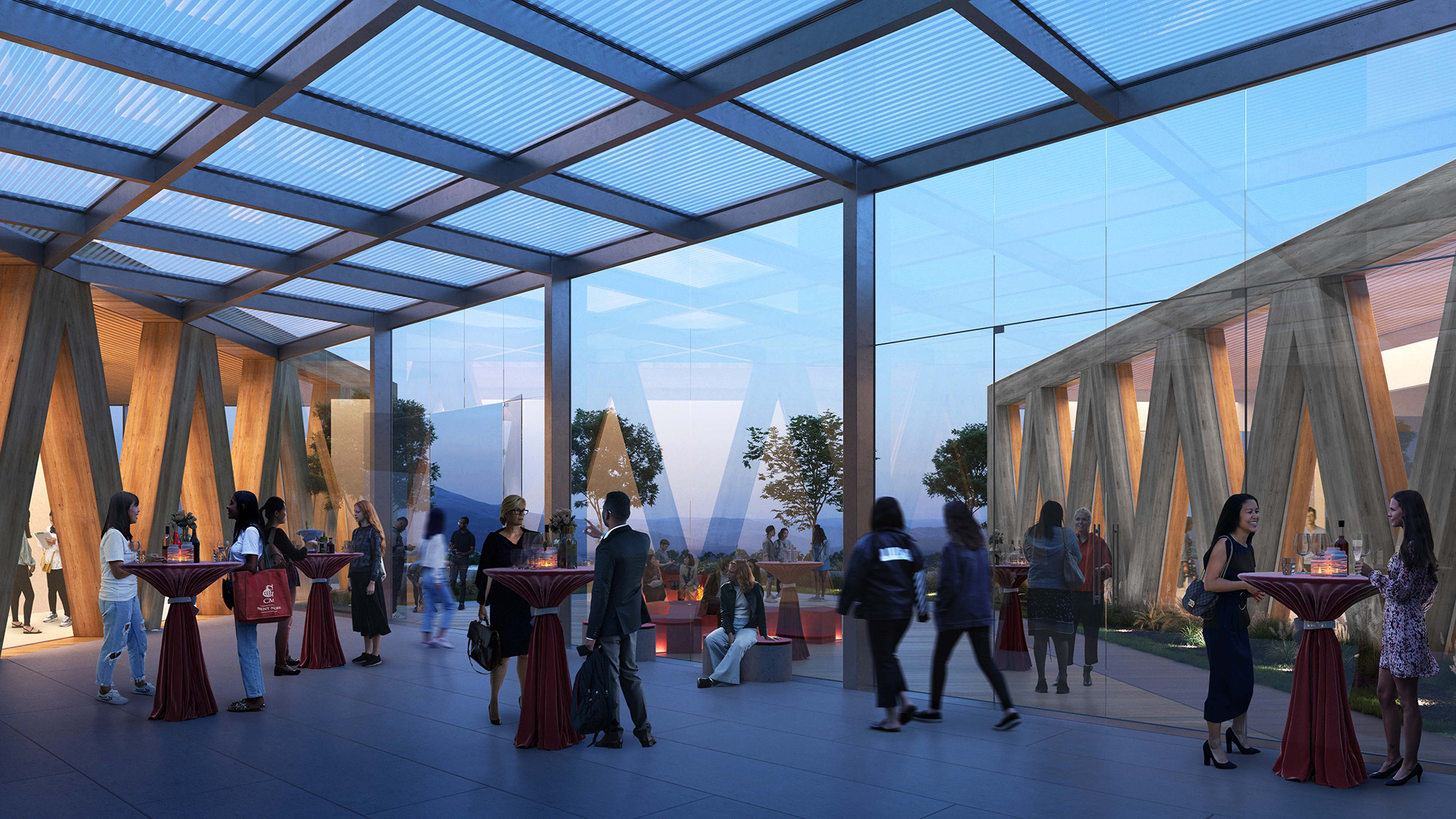
“The opportunity to be a participant in building an entirely new science program in the middle of the 21st century is absolutely exciting,” says Poston, an environmental biologist and an authority on science education public policy who has filled major leadership roles at the National Science Foundation.
Libeskind-Hadas shares Poston’s excitement.
“Our approach is a real game-changer for CMC,” says the computer scientist, formerly the R. Michael Shanahan Professor of Computer Science at Harvey Mudd College.
Libeskind-Hadas and Poston both speak from experience. He co-chaired the committee that led to the most recent revision of Harvey Mudd’s core curriculum. Poston developed Howard University’s initial environmental science program.
Faculty searches will commence as early as the 2022–23 academic year, and the first handful of Kravis Department of Integrated Sciences appointments may arrive as soon as the fall of 2023. When fully constituted, the 25-member department will organize and integrate science education around socio-scientific grand challenges falling under the broad themes of health, brain, and planet. New interdisciplinary majors will be proposed and launched under each theme.
Our future leaders—be they economists, politicians, journalists, consultants, or CEOs—will learn science by doing science. Because computational methods are now ubiquitous to all knowledge, everyone will study the foundations of programming, data visualization, statistics, and machine learning. According to Libeskind-Hadas, few other liberal arts colleges in the country currently provide this level of computing and quantitative literacy for all students.
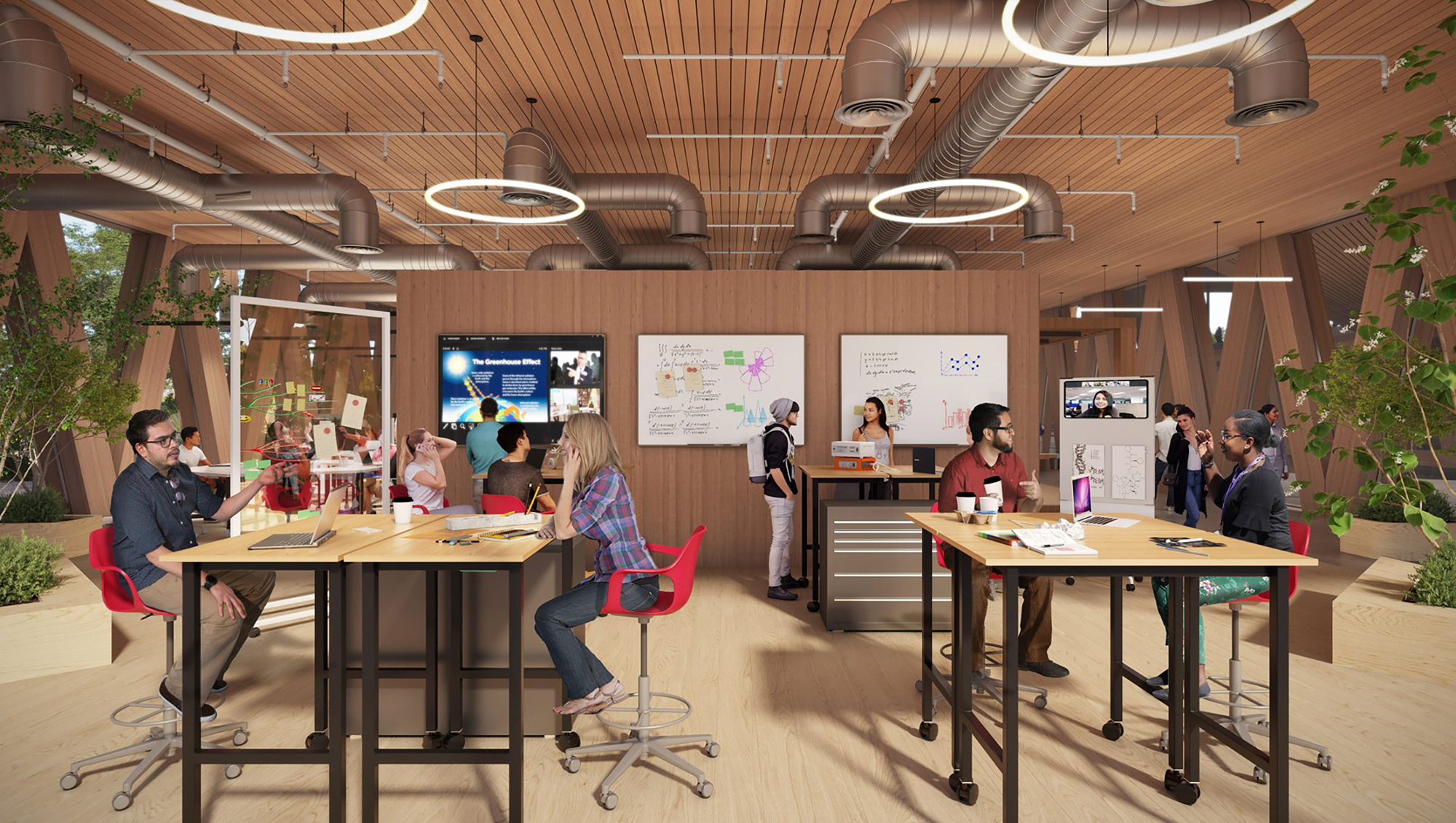
Because the program is organized around overlapping foci rather than traditional scientific disciplinary units, the Kravis Department of Integrated Sciences will instill confidence in all CMC graduates to take on novel problems that do not neatly fit into traditional silos and embolden them, throughout their careers, to employ whatever methods and concepts may apply.
CMC’s program will respond to a growing need for computationally-rich science curricula, hands-on learning opportunities, and “science in the public sphere,” especially for non-science majors. This will include building a “common on-ramp to the sciences” through general education courses and creating meaningful conversations around the impact of science on society—for instance, in cross-disciplinary areas like neuroeconomics, climate policy, bioethics, science journalism, and the ethics of algorithms.
“Our program is unique in creating a common science experience for all students,” Libeskind- Hadas says. “We want to make everyone a better thinker, so they’re able to synthesize the complexities of the world, which simply don’t arrive in neat and tidy disciplinary boxes.
“Our integrated approach will provide all our majors with cross-cutting problem-solving skills,” Libeskind-Hadas said.
This story appeared in the spring 2022 CMC magazine

